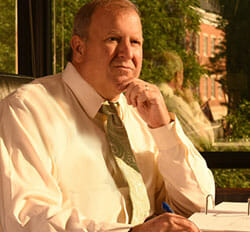Bereaved Parents Awareness Month
July 15th, 2016 by Attorney Roger Weinberg
July is Bereaved Parents Awareness Month, in support of those who have lost a child. Most parents never imagine life without their children, assuming they themselves will be the first to pass away. It doesn’t always work that way — some Maryland parents lose children in the years between infancy and adulthood, due to a disease or disorder, suicide, crime or accident caused by another.
This awareness month was started by Peter and Deb Kulkkula who lost two adult sons. Columbia, Maryland, psychiatrist Dr. Gordon Livingston lost one due to suicide when he was 23; just over a year later, he lost a six-year-old son to leukemia, according to the Today Show. He says friends and family members struggled to talk to him, often saying things that were well-intentioned but sometimes were insensitive. Livingston said people may avoid grieving parents as if they have a contagious disease.
Livingston and Deb Kulkkula gave the Today Show four suggestions for what to say to or do for a grieving parent…
- “Do you want to talk?”
Livingston suggests that simply being present may do more good than words you might say. “There’s no set of words that will work each time, but being there for someone in a supportive way is what provides the most consolation,” Livingston said.
Bereaved parents may feel a need to talk but find it difficult to start. Finding a way to open a conversation and provide an opportunity to talk can be helpful.
- “I remember the time when…”
Don’t avoid mentioning the name of the child who passed away. Deb Kulkkula said she and her husband loved hearing anecdotes about their late son. “With most people, it’s their own discomfort that stops them from talking about it with the family. So unless a parent tells you, ‘I can’t talk about him or her now,’ please talk about their children,” she said.
- “I gave to his memorial fund.”
Bereaved parents may fear their child will be forgotten. Setting up and funding a memorial or scholarship fund gives the child life after death, in a way.
- “I mowed the lawn.”
There’s a good chance an open-ended offer of help won’t be accepted because the parents may not feel they want help or know what they need. Specifically telling the parent when and how you will help (bringing a meal, mowing a lawn, walking a dog) is more likely to be accepted.
What should not be said is “I know how you feel” unless you are also a parent who lost a child. The loss of a parent, friend or spouse is not the same as the death of a child.
If a son or daughter died because of the negligence or intentional act of another, a wrongful death lawsuit is a way to seek justice for your child and compensation for your loss through the civil court system. We have the experience and skills to obtain the highest possible compensation for your loss and the compassion and care to treat you with the respect you deserve. Because there is a statute of limitations, or time limit, for filing a wrongful death claim in Maryland you should not delay. For compassionate, competent advocacy following the death of your loved one, call 410-825-3161 or use this online contact form to arrange for a free consultation.


 Roger Weinberg is a skilled and experienced attorney who has pioneered the legal field of representing Nursing Home, Assisted Living, and Developmental Disability victims and their families who have experienced abuse, neglect and wrongful death. He is a leader in this field and teaches other lawyers, students and medical personnel about the laws impacting such cases. [
Roger Weinberg is a skilled and experienced attorney who has pioneered the legal field of representing Nursing Home, Assisted Living, and Developmental Disability victims and their families who have experienced abuse, neglect and wrongful death. He is a leader in this field and teaches other lawyers, students and medical personnel about the laws impacting such cases. [ 



